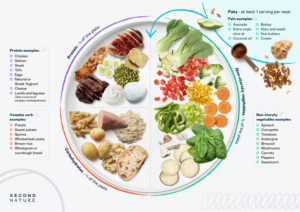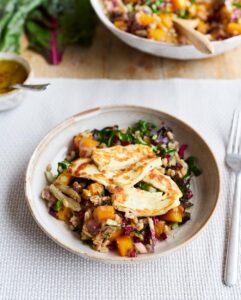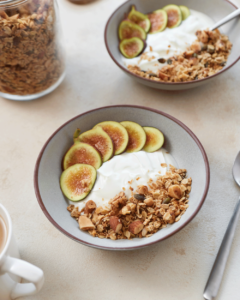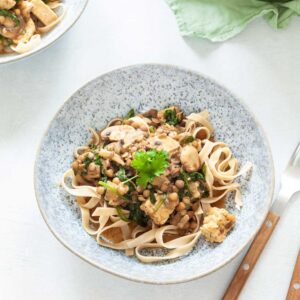Jump to: 5 best vegetarian protein sources – recommended by our dietitians
While vegetarian diets are rising in popularity, there remain concerns about whether people following a vegetarian diet obtain enough protein to support the body’s requirements for the growth and development of new cells. This includes other essential functions protein provides, such as supporting our immune system.
While research suggests that vegetarians consume less protein than meat-eaters and pescatarians, this tends to be more of an issue with the application of the diet rather than a lack of options.
You can achieve your protein requirements on a vegetarian diet, but it might need more attention. To ensure you’re getting enough protein on a vegetarian diet, there are two key points of focus:
- Ensuring you’re eating enough total protein: to achieve optimum health, this is recommended to be at least 1.2-1.6g per kilogram of body weight (g/kg/BW). This would be around 20-40g of protein in each meal or 25-30% of your plate.
- Ensuring you’re consuming all essential amino acids: plant-based proteins tend to be limited by having low levels of one or two amino acids. Combining different protein sources when eating plant-exclusive meals can ensure you’re meeting your requirements.

At Second Nature, you’re supported by a registered dietitian or nutritionist who can personalise your diet to your lifestyle, preferences, and goals.
Join people like Sarah who’ve made weight loss feel easier on our programme while following a plant-based diet. All you’d need to do to start is click here to take our health quiz.
Below, we’ve put together five of the best vegetarian protein sources you should include in your diet to ensure you’re providing your body with everything it needs.
For the vegan protein sources, we’ve provided information on their limiting amino acid and what other foods to pair them with to ensure you’re consuming all the essential amino acids your body needs.
*All nutritional information obtained from the USDA’s Food Data Central*
Medication-assisted weight loss with a future focus
Start with Mounjaro, transition to habit-based health with our support

5 best vegetarian protein sources – recommended by our dietitians
1) Cheese

Protein: ~20-35g per 100g, depending on what cheese you choose
Recipe: Try our warm halloumi, spelt, and roasted vegetable salad here.
2) Eggs

Protein: ~12g per 100g
Recipe: Try our shakshuka recipe here.
3) Yoghurt

Protein: 5-10g per 100g, depending on which yoghurt you use
Recipe: Try our spiced muesli recipe here and serve with your favourite yoghurt (we recommend full-fat to help you feel fuller for longer).
4) Tempeh

Protein: ~20.3g per 100g
Limiting amino acid: Methionine, but this depends on the source as soybeans vary
Pair with: Seeds and nuts
Recipe: Try our Mushroom and tempeh stroganoff recipe here and serve with a sprinkling of roasted cashews.
5) Tofu

Protein: ~18.8g per 100g
Limiting amino acid: Methionine, but this depends on the source as soybeans vary
Pair with: Seeds and nuts
Recipe: Try our tofu scrambled eggs recipe here and serve with seeded bread.


